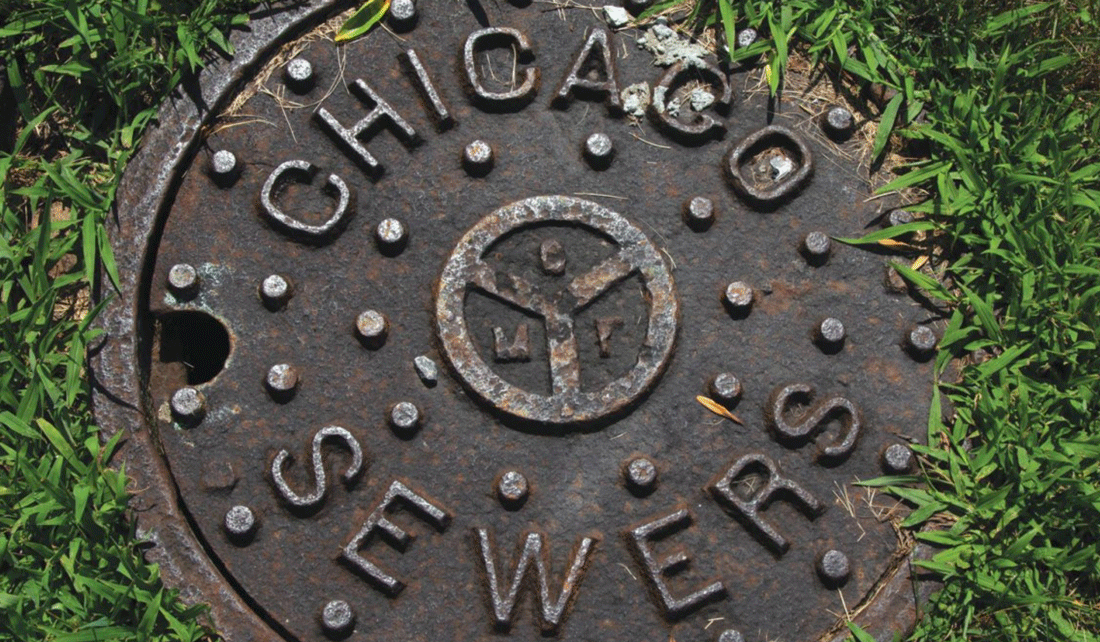
(University of Illinois Photo/Abigail Bobrow)
Many Chicago communities have issues with flooding after storms. Abigail Bobrow of University of Illinois at Urbana-Champaign has written and photographed a piece featuring first-hand stories of home flooding, a history of Chicago’s changing landscape attempting to prevent stormwater issues, and the research that is being done to help solve the problem. Illinois-Indiana Sea Grant has funded some of this research. Below is an excerpt of the full story.
City officials and organizations are very aware of the condition James and thousands of other Chicagoans find themselves in every time it rains.
In fact, for its entire 180-year existence, the city has been shifting, manipulating, and even fighting against the flow of water to prevent not only surface flooding and the spread of disease, but also the contamination of Chicago’s freshwater drinking supply, Lake Michigan.
This issue has literally shaped the city of Chicago.
Mary Pat McGuire, an Illinois landscape architecture professor with homes in Urbana and Chicago, is joining the efforts to address urban flooding. With funding from Illinois-Indiana Sea Grant, a land-grant university program that focuses on coastal community issues, she and her graduate student, Jinyu Shen, are leading an ambitious research project looking at how to sustainably design stormwater solutions in the Chicago region—above and below ground.
Mary Pat’s attention is on ecological sustainability, that is, creating a way for stormwater to infiltrate and be absorbed by the ground in a way that is nourishing for the city, not crippling. Mary Pat and her interdisciplinary team of landscape architects, geologists, and civil engineers from the university are focusing on the southern part of the Chicago landscape, an area where fewer projects like this are taking place.


